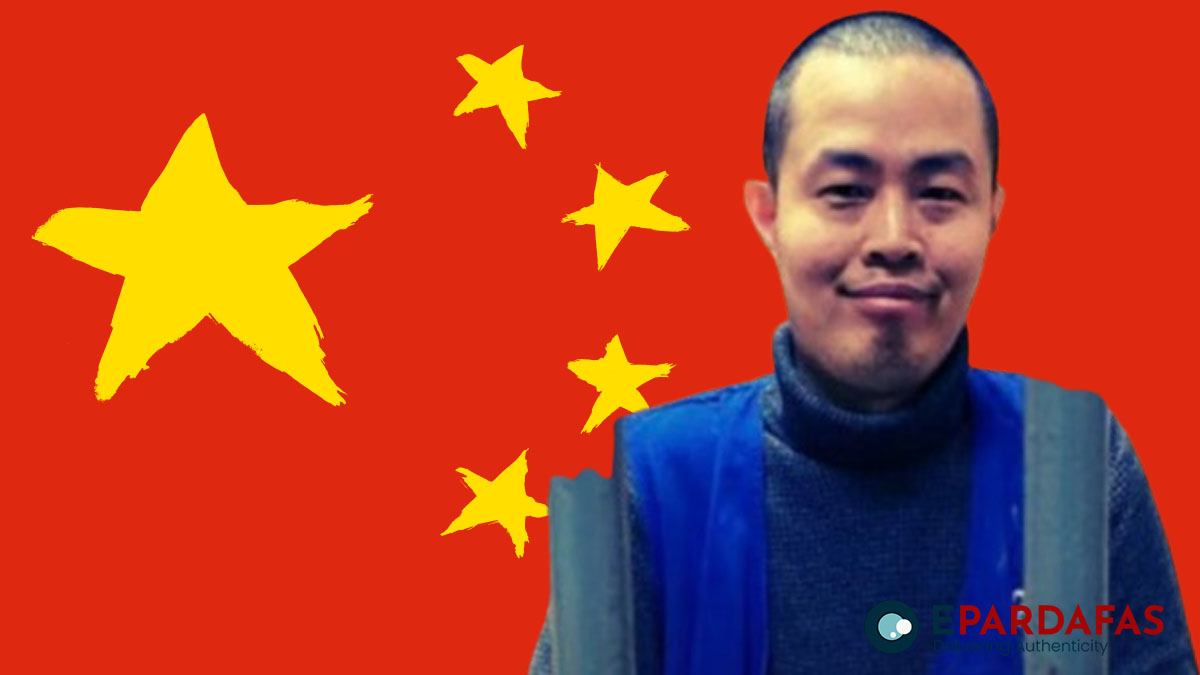Chen Pinlin, the director of the documentary Urumqi Middle Road, was sentenced to three and a half years in prison by the Shanghai Baoshan Court on charges of “picking quarrels and provoking trouble” following a three-hour closed-door trial. The heavy sentencing has drawn criticism from human rights activists and international observers, who view it as a suppression of free expression and an attempt to erase the memory of the anti-zero-COVID protests that erupted across China in late 2022.
The “White Paper Movement” began on November 26, 2022, in response to the deadly Urumqi apartment fire, where strict COVID-19 lockdown measures were blamed for hindering rescue efforts. Protesters across cities like Shanghai, Beijing, and Guangzhou raised blank sheets of paper as symbols of silent dissent against the Chinese government’s stringent zero-COVID policy.
Chen’s documentary, Urumqi Middle Road, captures these historic protests and the harsh realities of China’s lockdowns, including food shortages, forced quarantines, and widespread public discontent. The title refers to the street in Shanghai where protesters gathered to commemorate the victims of the Urumqi fire. The film, released online in November 2023, was widely viewed before Chen’s arrest shortly after.
Human rights lawyer Fang Xiangui criticized the trial as flawed, alleging procedural irregularities. Despite Chen signing a plea agreement recommending a two-year sentence, the court imposed a harsher punishment, prompting accusations of judicial overreach. Activists argue the sentence reflects the Chinese Communist Party’s (CCP) fear of dissent and its efforts to suppress narratives challenging its authority.
Observers believe Chen was targeted for exposing the CCP’s mishandling of the pandemic and for showcasing the grassroots origins of the protests. Zhou Fengsuo, executive director of Humanitarian China, described Chen’s work as “a courageous act to preserve truth and resist state propaganda.”
Chen’s sentencing has reignited debates on China’s curtailment of free expression. Critics point to the CCP’s frequent use of charges like “picking quarrels and provoking trouble” to silence activists, journalists, and filmmakers.
“Chen Pinlin’s documentary is not just a film—it’s a historical record of resistance,” said Jack Wei, a protester now in exile. “The CCP’s attempt to bury these stories only highlights their significance.”
International human rights organizations have condemned the sentencing and called for Chen’s release. Activists have also sought to preserve Urumqi Middle Road by re-uploading the documentary on various platforms, ensuring its message endures despite attempts at censorship.
“This is not just about one man,” said Fang Zheng, chairman of the China Democracy Education Foundation. “It’s about the CCP’s relentless crackdown on truth-tellers and its fear of the power of collective memory.”
Chen’s case underscores the ongoing struggles for human rights and free expression in China, as activists and ordinary citizens continue to resist efforts to rewrite or erase their history.



Comments